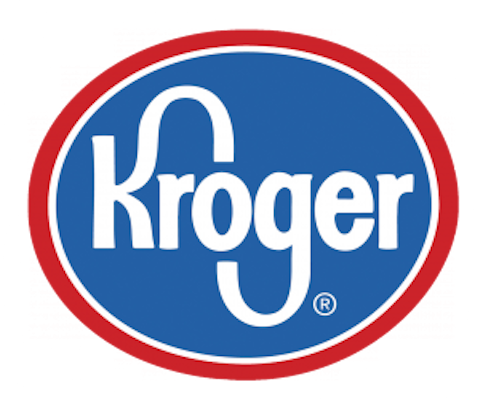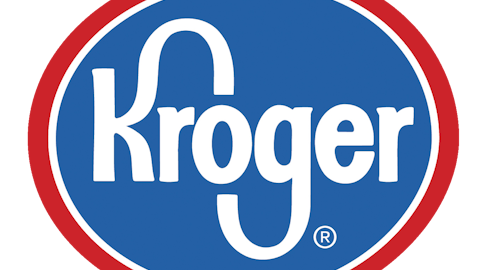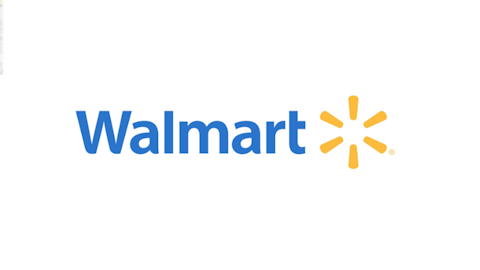
Harris Teeter’s business snapshot
Harris Teeter Supermarkets Inc (NYSE:HTSI) is a regional supermarket operator with around 208 stores in eight states, mainly in the southeastern and mid-Atlantic U.S., as well as the District of Columbia. In the past three years, Harris Teeter has managed to increase the number of its stores from 199 in 2010 to 208 in 2012, while the average weekly net sales per store also has risen consistently as well, form $395,510 in 2010 to $425,235.
In the past ten years, Harris Teeter has managed to grow its revenue at a decent rate, from $2.73 billion in 2003 to $4.54 billion in 2012, while its net income rose from $60 million to $83 million during the same period. Since 2003, Harris Teeter’s operating cash flow has been consistently positive, but the free cash flow has fluctuated widely, in the range of $(59) million to $118 million. In the past twelve months, the company produced $238 million in operating cash flow and $29 million in free cash flow.
Investors would feel safe with Harris Teeter because of its conservative capital structure. As of March 2013, it had more than $1 billion in equity, $193 million in cash and no interest-bearing debt. The contractual obligations came in at only $227.17 million in less than a year (since September 2012) and $281.74 million in the period of 1-3 years. At $49.38 per share, Harris Teeter is valued at around 8 times its trailing EBITDA.
The Kroger Co. (NYSE:KR) could expand the business in higher growth areas
The Kroger Co. (NYSE:KR) is considered the world’s largest grocery chain, operating 2,419 supermarkets and multi-department stores in 31 states. Around $48.67 billion, or 50.3% of the total sales, were generated from non perishable goods, while the perishable goods ranked second with nearly $19.9 billion in 2012 sales. Fuel stayed in third place, accounting for 19.5% of the total revenue in 2012.
The acquisition of Harris Teeter will allow The Kroger Co. (NYSE:KR) to expand its national footprint into higher growth areas, especially in fresh foods and private-label goods. David B. Dillon, The Kroger Co. (NYSE:KR)’s Chairman and CEO, felt bullish about the acquisition, saying
They have a stronger fresh reputation, and by fresh I’m really referring to all the perishable departments, than some of the Kroger operations. Our intent is to learn from them. ‘How do they get that reputation? What are some of the things they do that create that?’ It won’t be as much, I think, in the actual products as in the methods by which we get the products to the market.
Kroger plans to finance this transaction with debt, and it would manage its free cash flow in an efficient manner to reduce the leverage from this merger. Kroger expected to maintain the net debt/EBITDA in the range of 2 – 2.20 in the next 18-24 months. The estimated annual cost savings would be $40-$50 million in the next 3-5 years, mainly from the benefits of Kroger’s scale. The net accretion to earning per diluted share was expected to stay in the range of $0.06-$0.09 per share. Kroger is trading at $37.60 per share, with a total market cap of $19.50 billion. The market values Kroger quite cheaply, at only 6 times its trailing EBITDA.
The world’s biggest retailer is Wal-Mart Stores, Inc. (NYSE:WMT), with a market cap of $254.40 billion. Wal-Mart Stores, Inc. (NYSE:WMT) is trading at $77.60 per share, with the highest EBITDA multiple of 8.3. Wal-Mart generated most of its revenue (55%) from Grocery, while Entertainment goods and Health & Wellness goods each accounted for 11% of its total sales in 2012. In the second quarter, Wal-Mart expected to generate around $1.22 to $1.27 in EPS, 3.4%-7.6% higher than the EPS of $1.18 in the second quarter last year.
Wal-Mart seems to deserve the highest valuation because of its highest profitability. In the past twelve months, Wal-Mart enjoyed the highest return on invested capital at 12.34%. Kroger ranked second with nearly 10.10% return on invested capital while Harris Teeter’s ROIC came in at only 6.62%. Income investors would like Wal-Mart the most with its highest dividend yield at 2.4%, whereas the dividend yields of Kroger and Harris Teeter are 1.6% and 1.2%, respectively.
My Foolish take
The acquisition of Harris Teeter would let Kroger expand its business in higher growth area and take advantage of Harris Teeter’s fresh reputation in the perishable department. The buyout valuation does not seem to be expensive either. Among the three, I like Wal-Mart the most because of its highest dividend yield and the most profitability.
The article Is Kroger a Buy After The Recent Acquisition? originally appeared on Fool.com and is written by Anh Hoang.
Anh HOANG has no position in any stocks mentioned. The Motley Fool has no position in any of the stocks mentioned. Anh is a member of The Motley Fool Blog Network — entries represent the personal opinion of the blogger and are not formally edited.
Copyright © 1995 – 2013 The Motley Fool, LLC. All rights reserved. The Motley Fool has a disclosure policy.



